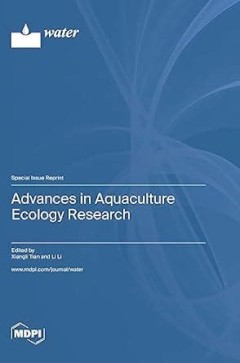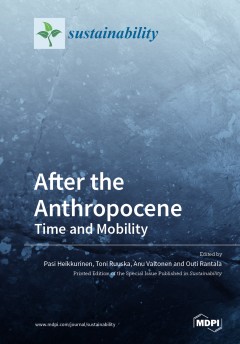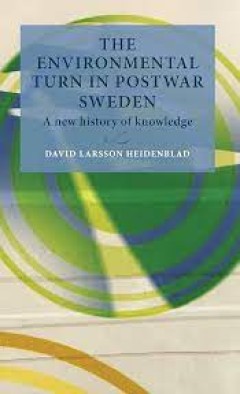Filter by

Art in the Anthropocene: Encounters Among Aesthetics, Politics, Environments …
Taking as its premise that the proposed geologic epoch of the Anthropocene is necessarily an aesthetic event, this book explores the relationship between contemporary art and knowledge production in an era of ecological crisis, with contributions from artists, curators, theorists and activists. Contributors include Amy Balkin, Ursula Biemann, Amanda Boetzkes, Lindsay Bremner, Joshua Clover & Ju…
- Edition
- -
- ISBN/ISSN
- 9781785420177
- Collation
- oer.unej.ac.id
- Series Title
- Critical Climate Change,
- Call Number
- -

Arsenic Monitoring, Removal and Remediation
Arsenic Monitoring, Removal and Remediation discusses methods for determining arsenic levels in the environment and removing arsenic pollution. Chapters in the first section comment on the principal methods for arsenic determination in environmental samples with emphasis on sample pretreatment, extraction, separation, and method validation techniques for speciation analysis. Attention is paid t…
- Edition
- -
- ISBN/ISSN
- 9781839696664
- Collation
- oer.unej.ac.id
- Series Title
- -
- Call Number
- -

Advances in Bioremediation and Phytoremediation
The pollution of soil and groundwater by harmful chemical compounds and heavy metals is becoming very serious in many countries. Although remediation is necessary as soon as possible, the performance of conventional bioremediation processes is not sufficient. This book deals with advances in bioremediation and phytoremediation processes by using excellent strains and a combination of processes.…
- Edition
- -
- ISBN/ISSN
- 9789535140238
- Collation
- 200 hlm; ill., lamp.,
- Series Title
- -
- Call Number
- -

Advances in Aquaculture Ecology Research
The discipline of aquaculture ecology is developing rapidly and has generated much valuable progress in recent decades. This reprint mainly describes the recent advances in the individual ecology of commercial aquatic organisms, the ecology of aquaculture systems, the interaction between aquaculture activities and the environment, the structure of function of microbial communities, the principl…
- Edition
- -
- ISBN/ISSN
- 9783036579757
- Collation
- 180 hlm; ill., lamp.,
- Series Title
- -
- Call Number
- -

Advances in Landscape Architecture
Landscape architecture is the design of outdoor and public spaces to achieve environmental, socio-behavioral, and/or aesthetic outcomes. It involves the systematic investigation of existing social, ecological, and geological conditions and processes in the landscape, and the design of interventions that will produce the desired outcome. The scope of the profession includes: urban design; site p…
- Edition
- -
- ISBN/ISSN
- 9789535153818
- Collation
- oer.unej.ac.id
- Series Title
- -
- Call Number
- -

After the Anthropocene: Time and Mobility
- Edition
- -
- ISBN/ISSN
- 9783039369577
- Collation
- -
- Series Title
- -
- Call Number
- -
- Edition
- -
- ISBN/ISSN
- 9783039369577
- Collation
- -
- Series Title
- -
- Call Number
- -

Advances in Landscape Architecture
Landscape architecture is the design of outdoor and public spaces to achieve environmental, socio-behavioral, and/or aesthetic outcomes. It involves the systematic investigation of existing social, ecological, and geological conditions and processes in the landscape, and the design of interventions that will produce the desired outcome. The scope of the profession includes: urban design; site p…
- Edition
- -
- ISBN/ISSN
- 9789535153818
- Collation
- oer.unej.ac.id
- Series Title
- -
- Call Number
- -

Ecosystem Restoration through Managing Socio-Ecological Production Landscapes…
This Open Access book series aims to make timely and targeted contributions for decision-makers and on-the-ground practitioners by producing knowledge concerning “socio-ecological production landscapes and seascapes” (SEPLS) – areas where production activities help maintain biodiversity and ecosystem services in various forms while sustainably supporting the livelihoods and well-b…
- Edition
- -
- ISBN/ISSN
- 9789819912926
- Collation
- -
- Series Title
- -
- Call Number
- -

The environmental turn in postwar Sweden A new history of knowledge
This book tells the story of how modern environmentalism emerged in postwar Sweden. It shows that the ‘environmental turn’ in Sweden occurred as early as the autumn of 1967 and that natural scientists led the way. The most influential was the chemist Hans Palmstierna, who was both an active Social Democrat and a regular contributor to the nation’s leading morning paper. Thus, he had a uni…
- Edition
- -
- ISBN/ISSN
- 9789198557749
- Collation
- -
- Series Title
- -
- Call Number
- -

Ecology of Angola
This open access book richly illustrates the first, and comprehensive, account of the country’s biomes and ecoregions, the driving forces that account for their diversity and vulnerability, and the ecological principles that provide an understanding of the patterns and processes that have shaped landscapes, ecoregions, and ecosystems. Angola encompasses the greatest diversity of terrestrial b…
- Edition
- -
- ISBN/ISSN
- 9783031189234
- Collation
- -
- Series Title
- -
- Call Number
- -
 Computer Science, Information & General Works
Computer Science, Information & General Works  Philosophy & Psychology
Philosophy & Psychology  Religion
Religion  Social Sciences
Social Sciences  Language
Language  Pure Science
Pure Science  Applied Sciences
Applied Sciences  Art & Recreation
Art & Recreation  Literature
Literature  History & Geography
History & Geography